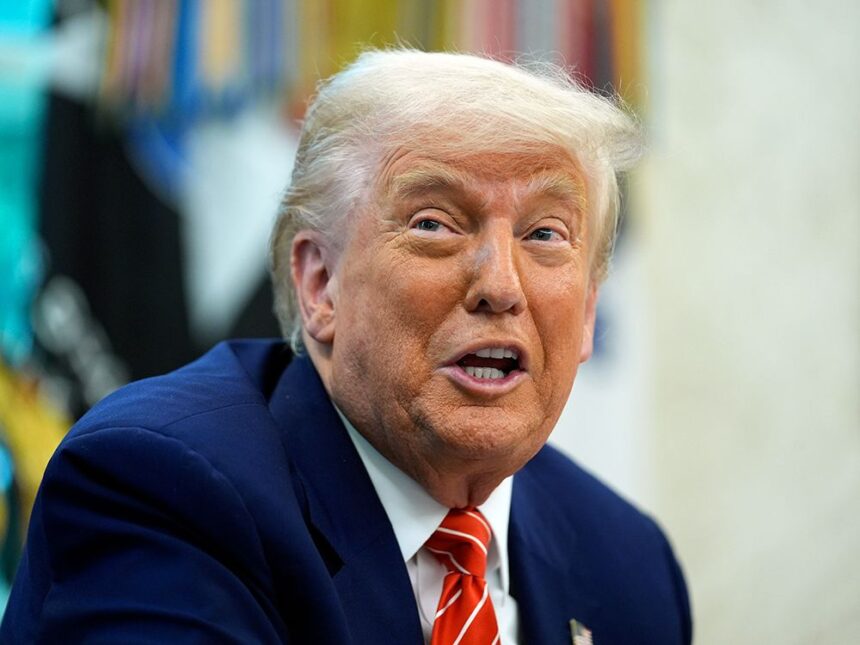My colleague standing outside Iran’s U.N. mission in New York couldn’t believe what I was telling him over the phone. “They wanted to kill Khamenei? And Trump said no?” he whispered, stepping away from the security guards. “That’s going to change some narratives.”
According to a bombshell report in The New York Times, former President Donald Trump rejected an Israeli plan to assassinate Iran’s Supreme Leader Ayatollah Ali Khamenei in 2020. The revelation comes amid escalating tensions between Iran and Israel, with both nations exchanging direct military strikes in recent months.
Three former U.S. officials familiar with the classified discussions told the Times that Israeli officials approached the Trump administration seeking tacit approval for the high-risk operation. Trump, despite his well-documented hawkish stance toward Iran, ultimately refused to support the plan.
“This was not a casual conversation,” said Martin Indyk, former U.S. ambassador to Israel, when I reached him by phone yesterday. “Targeting Khamenei would have been seen as a declaration of war, not just by Iran but potentially across the Shia world.”
The Israeli proposal emerged after the January 2020 U.S. drone strike that killed Iranian General Qassem Soleimani in Baghdad. That operation, which Trump did authorize, brought Washington and Tehran to the brink of open warfare. Iran responded with missile strikes against U.S. forces in Iraq.
Israeli strategists reportedly viewed the post-Soleimani period as an opportunity to eliminate Iran’s 85-year-old supreme leader, arguing it would destabilize the regime’s power structure. But American intelligence assessments warned that assassinating Khamenei would likely trigger unprecedented retaliation against both U.S. and Israeli targets throughout the Middle East.
“The risks far outweighed any potential benefits,” a former Pentagon official told me on condition of anonymity because they weren’t authorized to discuss classified matters. “We’re talking about potential attacks on U.S. embassies, military bases, and possibly even attempts to strike the homeland.”
What makes this revelation particularly striking is how it contradicts the prevailing narrative about Trump’s Middle East policy. Throughout his presidency, Trump aligned closely with then-Israeli Prime Minister Benjamin Netanyahu, withdrawing from the Iran nuclear deal in 2018 and imposing crippling sanctions on Tehran.
The International Crisis Group’s Iran Project Director Ali Vaez explained the complex calculus at play. “Even for an administration that prided itself on ‘maximum pressure’ against Iran, assassinating the supreme leader crossed a red line that could have ignited a regional conflagration with unpredictable consequences.”
In 2020, Iran was already reeling from the Soleimani assassination, economic sanctions, and the COVID-19 pandemic. U.S. intelligence agencies assessed that attacking Khamenei might have strengthened hardliners within Iran’s Revolutionary Guard rather than weakening the regime.
The Times report indicates that senior Pentagon officials and intelligence leaders strongly opposed the Israeli plan, presenting Trump with analysis showing the significant risks of regional escalation. Several U.S. aircraft carriers were already positioned in the Persian Gulf region following the Soleimani strike, but military planners warned they would be insufficient to handle the potential fallout.
“When you’re talking about killing a head of state – particularly one with religious significance – you’re entering uncharted territory,” said Barbara Slavin, director of the Future of Iran Initiative at the Atlantic Council. “The blowback could have been catastrophic not just for American forces but for partners across the region.”
The revelation comes at a sensitive moment. Israel and Iran exchanged direct military strikes in April, marking a dangerous new phase in their decades-long shadow war. Meanwhile, nuclear negotiations between Washington and Tehran remain stalled, with Iran continuing to enrich uranium to near weapons-grade levels.
During my reporting in Tehran last year, Iranian officials repeatedly cited the Soleimani assassination as evidence of American “state terrorism.” One senior cleric at the influential Qom seminary told me, “If they had targeted the Supreme Leader, there would be no restraint in our response.”
The Biden administration has distanced itself from its predecessor’s approach toward Iran, seeking to revive diplomatic engagement. However, prospects for a breakthrough remain dim amid Israel’s war in Gaza and growing concerns about Iran’s nuclear program.
For Israelis, the unrealized assassination plan represents a missed opportunity. “Some in Israeli intelligence circles still believe decapitating Iran’s leadership would have fundamentally altered the strategic landscape,” said a Tel Aviv-based security analyst who requested anonymity due to the sensitivity of the matter.
As Washington, Jerusalem, and Tehran continue their dangerous dance, this revelation provides a rare glimpse into the high-stakes decisions that shape Middle East security. It also suggests that even at the height of his anti-Iran stance, Trump recognized certain boundaries that shouldn’t be crossed.
Whether his successor shares that restraint remains an open question as the region teeters on the edge of a wider conflict.






